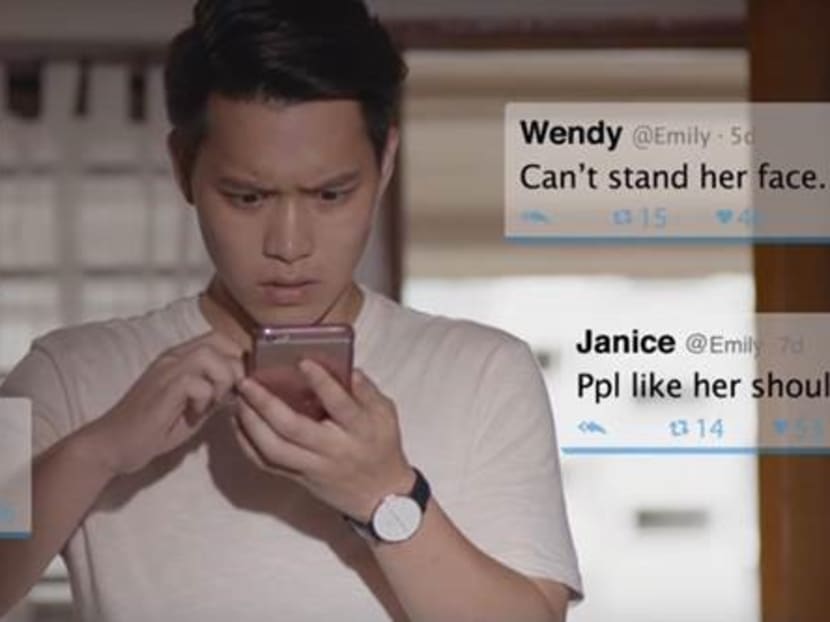Teaching youths to do what’s right online
SINGAPORE — Through emotive television commercials (TVCs) and social experiments, the Media Literacy Council (MLC) aims to stamp out cyber-bullying, teach online users the difference between real and fake news and the perils of excessive screen time as part of its involvement in the global Safer Internet Day (SID) movement this year.

A screengrab of the TVC on the effects of cyber-bullying, which was made available today as part of the Media Literacy Council’s Better Internet Campaign this year. Source: Media Literacy Council
SINGAPORE — Through emotive television commercials (TVCs) and social experiments, the Media Literacy Council (MLC) aims to stamp out cyber-bullying, teach online users the difference between real and fake news and the perils of excessive screen time as part of its involvement in the global Safer Internet Day (SID) movement this year.
MLC launched its Better Internet Campaign on Tuesday (Feb 7) in its fourth year of participation in the SID, a global public awareness initiative started in 2004 to promote safe and positive use of digital technology.
Under the tagline of “Do What’s Right Online, Be the Change for a Better Internet”, the campaign targets active online users aged 15 to 35 years. It runs from Feb 7 to May 31 and will focus on one issue a month, starting with cyber-bullying.
Besides commissioning a TVC modelled after emotive Thai ads to highlight the impact cyber-bullies have on their victims, the council also conducted a public social experiment in various locations around Singapore to test how unsuspecting members of the public will act when they come across a group of students bullying another student.
The experiment was recorded and will be released online this Sunday.
Similar social experiments will be conducted for the other two topics of fake news and perils of screen time. They will be recorded and released online on April 2 and May 21 respectively.
Other activities organised include a workshop on online safety for parents, a youth forum on cyber wellness issues, and sharing sessions in schools between March and May where youths and 987FM radio deejays share stories on cyber-wellness.
Tertiary student Ena Su, 20, is one of those who will share her stories of how she used to be a cyber-bully in her secondary school days by using social media to say mean things about a fellow student she and her classmates did not like to hang out with.
Only when a teacher got involved, did Miss Su realise the damage she had done.
“When the person I was bullying shared about how she felt, she actually started crying… I felt very sorry, I realised that I made her feel very hurt, and I didn’t expect that because being behind the screen, it feels desensitised, you don’t feel as much as you’re bullying people online as compared to when you’re face to face,” she said.
Find out more about the campaign and the activities via www.betterinternet.sg
Correction: An earlier version of this story said 978FM radio deejays will be sharing stories in schools on cyber-wellness. It should be 987FM deejays. We are sorry for the error.






